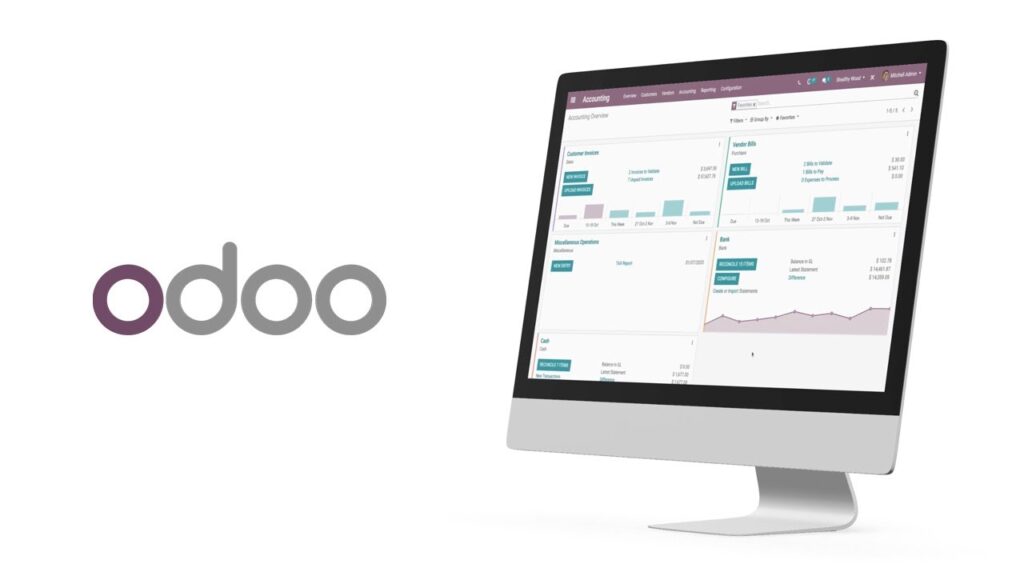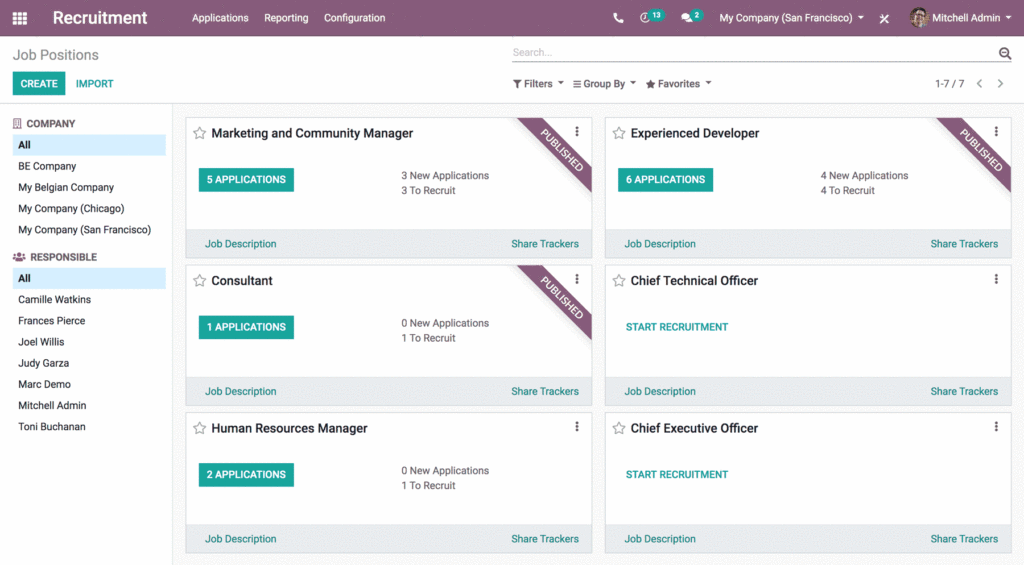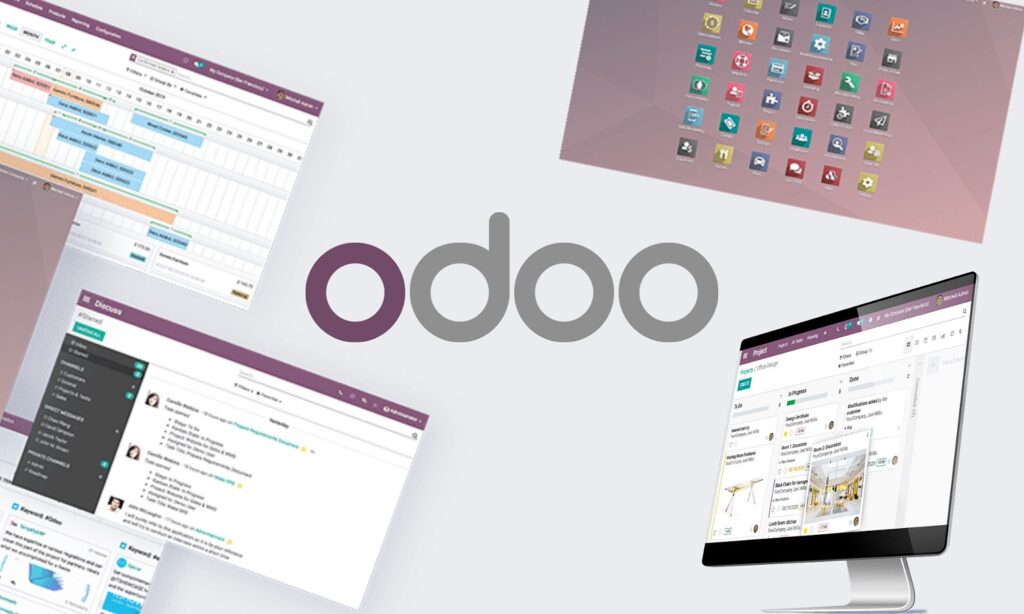When we talk about Odoo and SAP, we need to think about what our company really needs. Let’s explore why some big companies might find Odoo better than SAP:
1. Saving Money
Odoo is a special kind of software called open-source ERP. This means it costs less than SAP, which can be quite expensive. With Odoo, companies don’t have to pay big fees just for using the software. Plus, they can change and expand it the way they want.
2. Being Flexible and Personalized
Odoo is known for being flexible and personal. That means it can change to fit exactly what a company wants. It’s like a dress that you can adjust to your size! Because of this, Odoo works well for all sorts of businesses. SAP, on the other hand, is like a suit that’s made for really big companies, like the ones you hear about in the news.
3. Easy to Use
Odoo is easy to understand and use. Imagine a game that has clear rules and simple buttons to press. That’s what Odoo is like. But SAP is a bit more like a complicated puzzle that takes time to figure out. You might need some special training to play this puzzle well.
4. Growing Bigger
Companies change over time. Odoo can change with them. It’s like starting with a small puzzle and adding more pieces as you grow. This is good for both small companies and big ones. But SAP is like a puzzle that’s meant for big experts. It’s harder to make it work for smaller companies.
5. Using Everywhere
Odoo can talk to other software and can be used on phones and tablets. This is helpful for big companies with many different parts that need to talk to each other. It’s like having a phone that connects to all your friends. But remember, SAP is a bit like a famous library that’s really good at keeping big books safe. It’s a big deal for big companies that need to keep a lot of information.
The Big Picture: Remember, SAP is like the wise old tree in the forest of business software. It’s been around for a long time and many big companies trust it. But choosing between Odoo and SAP is like choosing between a colorful bike and a strong car. It depends on how fast you want to go, how much money you have, and how tricky your path is.
In the end, picking Odoo or SAP for your big company depends on what your company needs, how much money you can spend, and how complicated things are. Just like picking the right tool for a job.
Read also: Is Odoo Cloud-based? What You Need To Know
The cost of Odoo compare to the cost of SAP
When it comes to the price of Odoo and SAP ERP software, it really depends on how many people will use it and what parts of the software they need. Let’s take a look at how the costs compare between Odoo and SAP.
Odoo
Odoo is a type of ERP software that is open-source, which means it’s free to use at its basic level. But if you want extra features and help, you might have to pay some money. On average, when a company has 50 people using Odoo, they pay about $13.50 for each person every month. That adds up to around $75,000 per year for 50 users, according to what I read on Odoo.com.
SAP
SAP’s ERP software can be pricier compared to Odoo. For something called SAP Business One, each user might need to pay about $2,975, and then they have to pay an extra 18% every year after that. If we’re talking about 50 people using SAP Business One, the yearly cost could be around $282,625.
Remember, the comparison of costs between Odoo and SAP can change depending on what a business wants. Also, it’s good to know that while Odoo is newer, SAP has been around for a long time and is pretty well-known.
So, when we put it all together, Odoo is often thought of as a budget-friendly choice when compared to SAP, especially for smaller or medium-sized companies. But picking between Odoo and SAP really comes down to what a business needs, how much money they have to spend, and how complex their work is.
Related: Odoo vs. ERPNext: Which Is The Best ERP?
The advantages of using SAP over Odoo for big companies
SAP, a well-established and mature ERP solution, has a long-standing presence in the market, especially favored by large enterprises. Exploring its advantages over Odoo for bigger companies reveals a range of benefits that make it a preferred choice.
1. Stability
SAP stands out as a technology that has proven its stability over the years. This enduring presence makes it a reliable option for large enterprises that seek consistency and dependability in their business operations.
2. Sophistication
SAP’s reputation extends to its sophistication, which suits the intricate needs of Fortune 1000 companies. These entities, with their intricate business processes, find SAP’s advanced system design well-suited to their complexities.
3. Large Data Processing
One of SAP’s strengths lies in its capability to handle massive amounts of data. This aspect makes it an optimal choice for sizeable enterprises dealing with thousands or even millions of orders each day, ensuring smooth data management.
4. Industry-Specific Solutions
SAP goes beyond a one-size-fits-all approach by offering industry-specific solutions tailored to the unique requirements of different sectors. Manufacturing, retail, and healthcare are examples of industries benefiting from SAP’s customized solutions.
5. Integration Capabilities
SAP’s integration capabilities stand strong, enabling seamless connections with other systems. This means that companies can access their data on the move, promoting efficient workflows and informed decision-making.
6. Stability and Security
SAP’s reputation for stability and security shines bright. Large enterprises handling sensitive data can place their trust in SAP, knowing that their valuable information is safeguarded within the system.
Read also: Which Odoo Version Is The Best For Your Business
Before deciding between Odoo and SAP, there are some important questions you should think about:
1. What Does Your Company Need?
Consider what features your company really needs from the software. Different businesses have different needs, so it’s crucial to make sure the software aligns with your specific requirements.
2. Can the Software Grow with Your Company?
Think about the future. Will the software be able to keep up with your company’s growth? You don’t want to invest in a solution that becomes obsolete as your business expands.
3. What Are the Costs?
It’s not just about the initial purchase cost. You should also factor in implementation costs and annual expenses. This will give you a more realistic picture of the software’s total cost of ownership.
4. What Are the Deadlines?
Time is often of the essence. Determine when you need the software to be up and running. Different software options may have different implementation timelines, which can impact your business operations.
5. Are There Any Additional Features or Benefits?
Explore if either Odoo or SAP offers any additional features or benefits that could give your company an edge. Sometimes, one software may have unique advantages that align better with your business goals.
6. What’s the Support and Training Like?
Consider the support and training options available for both Odoo and SAP. Having access to good support and training resources can make a big difference in how smoothly your team can adapt to the new software.
7. Have You Checked User Reviews?
It’s a good idea to see what other users have to say about their experiences with these software options. User reviews can provide valuable insights into the pros and cons.
8. Are There Any Integration Challenges?
Think about how well each software integrates with your existing systems. Integration can be a critical factor in streamlining your business processes.
By answering these questions, you’ll be better equipped to make an informed choice between Odoo and SAP that aligns with your company’s needs and goals.
Conclusion
It’s crucial to recognize that SAP holds a position of maturity and establishment within the ERP domain, particularly favored by extensive enterprises.
While SAP presents numerous advantages for substantial enterprises, it’s important to acknowledge that Odoo remains an alternative worth considering. It’s cost-effectiveness and adaptability cater to unique business needs.
Ultimately, the decision between Odoo and SAP hinges on the specific requirements, financial considerations, and intricacy of business processes for substantial corporations.






